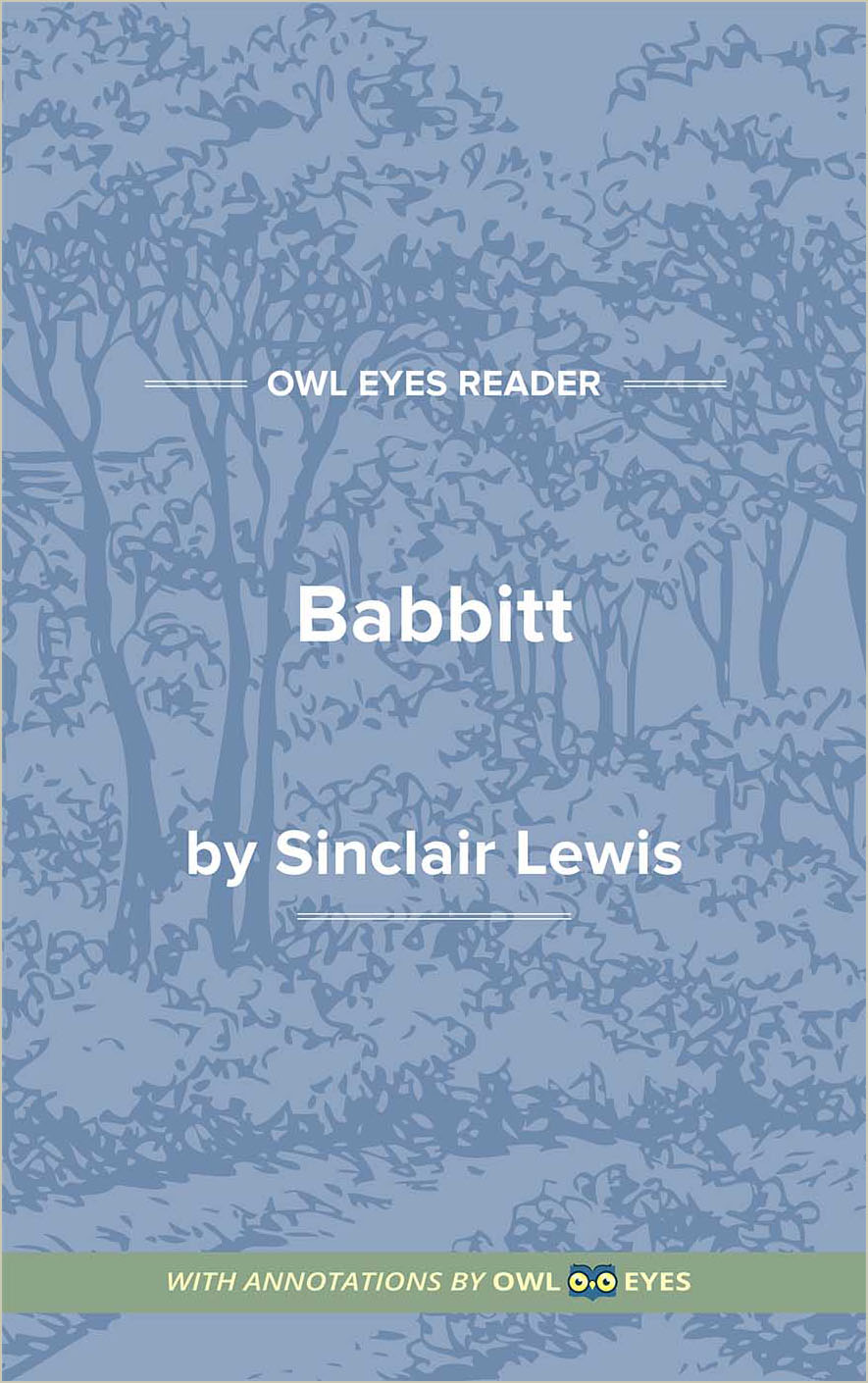Analysis Pages
Vocabulary in Babbitt
Vocabulary Examples in Babbitt:
Chapter I
🔒"New York Flyer..." See in text (Chapter I)
"Good Fellows..." See in text (Chapter I)
"Verona been at it again! 'Stead of sticking to Lilidol, like I've re-peat-ed-ly asked her, she's gone and gotten some confounded stinkum stuff that makes you sick!..." See in text (Chapter I)
"Himself a pious motorist, Babbitt cranked with the unseen driver, with him waited through taut hours for the roar of the starting engine..." See in text (Chapter I)
"veldt..." See in text (Chapter I)
"Zenith..." See in text (Chapter I)
Chapter V
🔒"fellows at the Roughnecks' Table..." See in text (Chapter V)
Chapter VII
🔒"grenadier andirons..." See in text (Chapter VII)
Chapter VIII
🔒"arcanum..." See in text (Chapter VIII)
Chapter XXIX
🔒"while she lamented her feminine ignorance, and praised his masterfulness, and proved to know much more about bonds than he did...." See in text (Chapter XXIX)
"skunks and reds..." See in text (Chapter XXIX)
""turned crank."..." See in text (Chapter XXIX)
Chapter XXX
🔒"pontifical..." See in text (Chapter XXX)
"He bought roses for the house, he ordered squab for dinner, he had the car cleaned and polished...." See in text (Chapter XXX)
Chapter XXXI
🔒"Patience on a Monument..." See in text (Chapter XXXI)
Chapter XXXII
🔒"you raised Cain..." See in text (Chapter XXXII)
""But I mean NICE people!"..." See in text (Chapter XXXII)
""Four-flusher! Bunch of hot air! And what's the matter with the immigrants? Gosh, they aren't all ignorant, and I got a hunch we're all descended from immigrants ourselves."..." See in text (Chapter XXXII)
Chapter XXXIII
🔒"hotter 'n the hinges of Hades!..." See in text (Chapter XXXIII)
Chapter XXXIV
🔒"dicker..." See in text (Chapter XXXIV)

